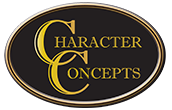No products
How to Make Your Family Love History
I love history because it’s fascinating. Oh, I know it wasn’t interesting to you in school. A lot of it wasn’t for me, either. That’s because it wasn’t taught well. They had us memorizing a bunch of names, dates, events etc. that just didn’t seem important. Nothing more boring than memorizing stuff you see no need for, just so you can regurgitate it on a test and then forget it.
But history, as the saying goes, is His story. The story of what God has been about doing for the several thousand years the clock of time has been ticking. History isn’t a list of facts, it’s a huge collection of adventures. The battle of Jericho, the Noahic Flood, the eruption of Vesuvius, the fall of Rome, the Crusades, the Magna Charta, the discovery of America, the Reformation, the landing of the Pilgrims, the Great Awakening, the War of Independence, the mountain men, the Indian wars, the Pony Express, the Civil War, the Industrial Revolution, the sinking of the Titanic, World War I, the Great Depression, World War II, the Baby Boom, Korea, Viet Nam, the youth revolution of the 1960’s…some happy events, some tragedies, but all exciting stories in the great catalog of human experience. It must take a lot of effort to make school books so boring.
I think the key to making history as interesting as it should be is to recognize that it is indeed a story. And at the same time, a collection of stories. Some are stories of great events that affected millions, like a war. Some are stories of incidents in individual lives that went no farther than one person or family, yet were recorded to entertain and instruct those of us who would read them years and even centuries later.
It’s not very motivating to memorize the dates of George Washington’s birth, presidency, battles and so on. But oh, to hear of the experiences in his life that made him the giant of a man that he was! And to read the many volumes that he wrote himself. They open a door into the mind of a central character in America’s history, a man we would otherwise know only as a name, a public career and some dates. Not nearly as exciting as the Battle of the Monongahela, in which Washington had two horses shot out from under him and ended the battle with bullet fragments in his hair and four bullet holes in his coat, but not a scratch. Washington ascribed his miraculous survival to God’s protection, giving us a moral lesson as well as a history lesson.
There was a time when the teaching of history was approached biographically. To use Washington’s time as an example, students used to read and discuss the founding of America from the viewpoints of Washington, Franklin, Madison, Adams, Hamilton and many others who were there in the middle of it. These men, like most of the Founders, wrote volumes and volumes which give us a clear picture of what they—and the times they lived in—were really about. There are tons and tons of such “primary sources” as they are called, still around and quite accessible. But if you get no deeper than a textbook treatment of a historical event, person or time period with your child—well, don’t expect a historian to blossom.
Do you want to become a lover of history? Want your child to learn the great lessons that can be learned from the lives of thousands who have worked their way through the wilderness of life before us? Then find and read stuff written by prominent characters of history. And read things written about them by people who knew them or knew others who did. An old book, if it’s a good one is a door to a different world which we can visit in no other way.
Stories are powerful. True stories are the most powerful. That’s why our book for 6-9-year-olds called Character Trails is full of stories from the Bible, history and everyday life. It’s also why my Uncle Rick recordings are mostly recordings of great old books, written before political correctness perverted modern publishing. Stories make learning interesting and learning that is interesting is learning that sticks.
For some great free history resources, go to http://www.gutenberg.org/ and gain access to over 30,000 free ebooks. You’re welcome.
